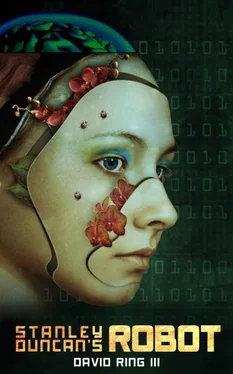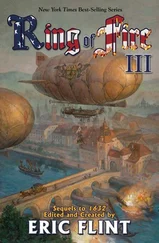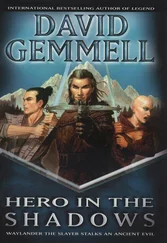“People change. From what I’ve heard of the police, I can’t imagine any of them having a decent bone in their body.”
“They’re not that bad.”
“I’m just glad that I won’t have to deal with them. I can’t imagine the stress Dan must feel knowing an entire group of people wants him and his kind dead.”
“Humanity is flawed,” said Morrison. “We screwed ourselves when we let the machines take our jobs. We weren’t ready for it. Without a purpose, we don’t know how to live life. We could have AI making better laws and regulations, but the politicians don’t want to give up power. They’re not doing it altruistically; they want to rule over us. With equality, they can’t do that. It’s all connected, you see. They’re afraid of what they’ve created. They’re backed into a corner and scrambling to retain power. We think we want an easy life, but we crave to hold on to things the way they are.”
“That’s why they don’t want Dan spreading awareness.”
“It’s ridiculous. They’re not addressing the problem. Jobs are a thing of the past, and humanity needs to find a new purpose for living. But instead of facilitating this, they’re fighting off advancement tooth and nail without offering any real solution — besides fuse. They want us all to check out.”
Stanley finished his tea. “People need to know that there are alternative ways to live. They need to understand that we are not at war with machine life. That’s what Machines with Dreams is all about — educating people. But this is impossible if all our attempts to educate people get shut down or blacked out.”
“Exactly. This is ironic, but I have been a proponent of nonviolence ever since Evan had me helping people at the library. But how am I to act when they take away my only weapon, free speech? We are being bled off. And it’s not just here, it’s happening around the country. My contacts — the men and women who I helped to survive the Great Layoff — continue to disappear without a trace. I can’t even get through to them via email anymore. Not to mention the huge blackout on foreign correspondence. I haven’t been able to reach overseas friends for years. We need to do something about this abuse of power. We need someone to fight for us, because it’s obvious the government isn’t going to do it for us. Quis custodiet ipsos custodes — as Juvenal wrote and Plato extended, ‘Who will guard the guards?’”
“Dan’s linked up to social media. He’s meeting people. He’s getting the word out that cyborgs and androids aren’t the enemy. He wants to bring everyone together.”
“And he has a big target on his back for it. You two need to be careful.”
Watching the 3D model of armor rotate around his monitor, Stanley prayed for Dan’s safety, cursing himself for failing to produce it. “We are. It’s just that Dan doesn’t know what’s good for him sometimes. He can be…” Stanley caught himself before tarnishing Dan’s carefully built reputation.
“I understand. God, I understand. I’m terrified that they’ll do something to my daughter.”
Stanley thought, Those antiquated, ignorant fools. If the police would only embrace the future, we could create a utopia together. Instead, they cling to power and pride, knocking down everyone who stands in their way. “I do understand. In fact, I have been thinking about a way to disrupt the system.”
“Oh?”
“The future of law enforcement,” said Stanley, booming with enthusiasm.
“We already have Mask’s private army, the elite MBTA officers. Nobody is crazy enough to mess with them.”
Stanley had left Boston before Mask had moved her headquarters there and deployed her private security team through a government contract. The MBTA were by far the deadliest ground force on the planet, but they were human and limited by law. The government was technologically years away from implementing a united AI police force — and, judging from the way things were now, they had no intention of ever doing so — but Dan was the undeniable truth that such progress was possible. Machine life could have been the vanguard of robotic security — intelligent, tactical, and incorruptible. How ironic that the fierce resistance to it by the police might be the driving force in it being brought to fruition.
“This will be different,” said Stanley. “A decentralized, non-human group of watchmen, patched in at lightning speed. Incorruptible.” Stanley could picture it: Dan and a brigade of machines enforcing the law. Connected to the cloud, interfacing with cameras and intelligence centers around the world, they would be able to receive communication at light speed and swiftly organize at all levels. Futuristic, non-lethal weapons to subdue criminals. Always following the letter of the law, always acting in accordance with what was right.
“Nothing is incorruptible,” said Morrison. “You know what happened with RaceX, right?”
“Yeah. Tons of hype but no delivery.”
“Ha! You couldn’t be more wrong. When Ellen—”
The line went dead.
Stanley tried to call him back, but the line was out of order.
“Strange,” he said as he dragged himself over to his usual spot by the window. Someone had egged it again. He couldn’t be bothered with cleaning it; there were too many ideas to explore. Slouching over, his head resting on his fists, Stanley disappeared into deep thought for a long while.
He couldn’t imagine Dan becoming corrupted. It seemed impossible, save for some virus or malware. But that would still be the programming, not who Dan really was.
Dan was good, incapable of evil. He had never made a non-deterministic decision in his life. There was no separate entity that existed within Dan with the free will to flip bits and modify his binary trees — it was completely deterministic. There was a reason for every one of Dan’s actions. A moral code had been programmed into him, but with the update Stanley had installed, even this code could be self-modified. Nevertheless, there had to be an external reason for it — and it couldn’t deviate from goodness. Because all of Dan’s actions conformed to this, corruption was impossible.
The front door exploded open, bursting the bubble into oblivion.
Sergeant Brad Jenkins sent shock waves through the stairs as he thundered up the metallic staircase, nearly toppling poor Glenda over. Using his thumb to crack two of his knuckles in his right hand — the once-broken ones seldom cracked — he desperately wanted an excuse to beat someone within an inch of their life.
He was one of the few people who had tried fuse and managed to stay off it afterward. It made him feel too good. He loved his pain. It was his identity, fueling him. He needed it and would not let anyone or anything steal it from him. He couldn’t forget what she had done to him — not completely. That pain was always there, floating like a distant buoy in an ocean of alcohol, reminding him of his reason to hate the world. He fostered the pain, drinking it in like a revitalizing elixir. Always angry, he was continuously looking for excuses to mete out punishment. The very notion of hurting someone delighted him. Between his anger, copious amounts of whiskey, and his deadly strength, very little that bothered him survived for long. The slightest reminder of her would send Brad off-kilter, one wrong look away from going ape-shit on someone and rearranging their face.
In the hallway, Glenda grimaced as she scanned Brad’s police uniform, her gaunt fingers tightening around Mittens. “What do you want with Stanley?”
Ignoring the impulse to push that senile bitch down the stairs, Brad snorted like a bull, glaring at her. He was ready to break down the door and smash Stanley to bits. He didn’t want to wait any longer. He could squish the life out of the ancient cat-lady with one hand if he wanted to. No surviving witnesses. But that wasn’t the plan. Stanley was a recluse, and that worked perfectly with his no-warrant strategy of coercing through fear. With his fist in the air, ready to knock at the door — or smash through it — Brad’s phone buzzed.
Читать дальше













